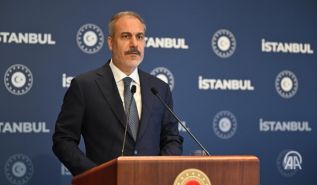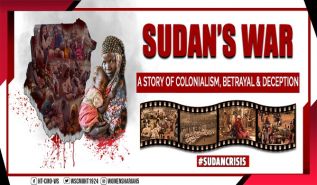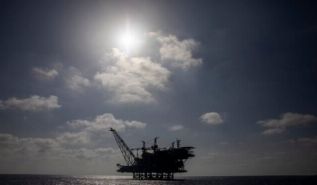بسم الله الرحمن الرحيم
News Right Now: The Poor and Pandemic
Welcome to this week's episode, “The Poor and the Pandemic”
As nations clamber to keep up with the growing rates of infection and Covid - 19 deaths worldwide ... over 1.3 million are now infected and 60,000 have died. Measures taken to lockdown populations have helped, but not stopped the spread of the virus. Social distancing and self isolation preceded Trump's latest call to wear masks in public - and the UK’s current obsession over testing, is a bid to return to normalcy for the sake of the economy. Throughout all this, governments are missing the wood for the trees, when it comes to responding to the effects of the pandemic on the poor.
There are consequences of social distancing, working from home and the closing of service industries - and these disproportionately affect the poor and those on low incomes. As communities are effectively shut down, creating containment zones and forcing quarantines - there are knock on effects on poorer people, who can't afford childcare, and who rely on free school meals for the adequate nutrition of their children.
Dr Nani Vall-llosera, a GP in Bon Pastor, a low-income Barcelona neighbourhood, and former president of the Catalan primary care forum said, “People who work in shopping centres, supermarkets and old people’s homes, as well as cleaners, are working without protection, often without masks, “These people get infected; they go home and infect those around them because there’s little possibility of self-isolating if you live in a small apartment.”
She added: “Furthermore, poverty and poor health are a vicious circle – the poorer you are the more likely you are to have health problems. And so the chances of becoming seriously ill with the virus are concentrated in poor neighborhoods”.
Likewise, safety net health clinics serving low income families, and the homeless face a dismal future. A drop in donations and federal funding, leaves these centres unprepared to face the pandemic and forces many to scale back services or even close their doors. Leaving the most vulnerable people at extreme risk. As the true effects of the pandemic are revealed, the gap between the rich and poor becomes ever more obvious.
Members of poorer communities in hard hit urban areas, already take the brunt of social mismanagement - facing poverty, unemployment, homelessness, a lack of medical insurance, and underlying health conditions. Governments are speaking to their populations from a position of privilege, not acknowledging that those not making a living wage can't even afford a weekly shop.
Compare these scenarios to those privileged enough to have stockpiled food and medicine, who can enjoy working from home and in Britain may even be furloughed upto 80% of their salary.
Those with private healthcare insurance and disposable income are still able to continue to source the planet's most elite health care services, medical interventions and access healthy, organic superfoods, while the masses eat what is not dissimilar to processed plastic. As expected, the poor in developing nations are hit the hardest by lockdown and quarantine measures, given the overcrowding, poor infrastructure and lack of resources.
In India up to 45 million migrant workers are stranded in cities like Delhi, without jobs, food and transportation to return to their rural villages.
Rickshaw pullers, traders, peddlers, labourers and informal workers are the backbone of the Indian economy, but face eviction after unemployment, as they have no savings to fall back on. And the already impoverished dalits, the so-called ‘untouchables’, are so malnourished that many have died within two days of not finding food.
Global health experts have called on the G20 leaders to pledge trillions of dollars to poorer countries and 8 billion dollars has been requested by the Global Preparedness Monitoring Board, but if and when assistance reaches places south of the equator, it will still be too late for many. What we are witnessing, beyond our individual covid concerns, is the natural outcome of Capitalism. Cemented in the current world order is a systemic inequality, entrenched in free market globalisation, which has enabled the monopoly of core industries, affecting the basic needs of people globally.
Aside from the ever growing gap between the rich and poor, we find extremes of wealth and poverty unheard of before. Where the wealthy own and utilise the lion's share of the planet's resources and the poor are either impoverished or cornered by a lack of opportunity that prevents any social mobility. The mask of Capitalism has fallen, and poverty, injustice and insecurity can all be traced back to its unjust values of nationalism and individualism which set nations, communities, and even families against one another.
Beyond the pandemic, the poor of the world can only expect legislation that will protect the ever diminishing interests and freedoms of the wealthy in society under the pretense of economic growth and cost benefit. As the situation worsens, the duty of every Muslim is to at the very least support the system of Islam in its entirety.
As Allah swt says:
( لَهُ مُعَقِّبَاتٌ مِنْ بَيْنِ يَدَيْهِ وَمِنْ خَلْفِهِ يَحْفَظُونَهُ مِنْ أَمْرِ اللَّهِ ۗ إِنَّ اللَّهَ لَا يُغَيِّرُ مَا بِقَوْمٍ حَتَّىٰ يُغَيِّرُوا مَا بِأَنْفُسِهِمْ ۗ وَإِذَا أَرَادَ اللَّهُ بِقَوْمٍ سُوءًا فَلَا مَرَدَّ لَهُ ۚ وَمَا لَهُمْ مِنْ دُونِهِ مِنْ وَالٍ)
“Allah will not change the situation of a people until they change what is within themselves”. Surah Ar Raad Aya 11
Please share this file with #covid_19 & #Korona
Ummah Voice Podcast




